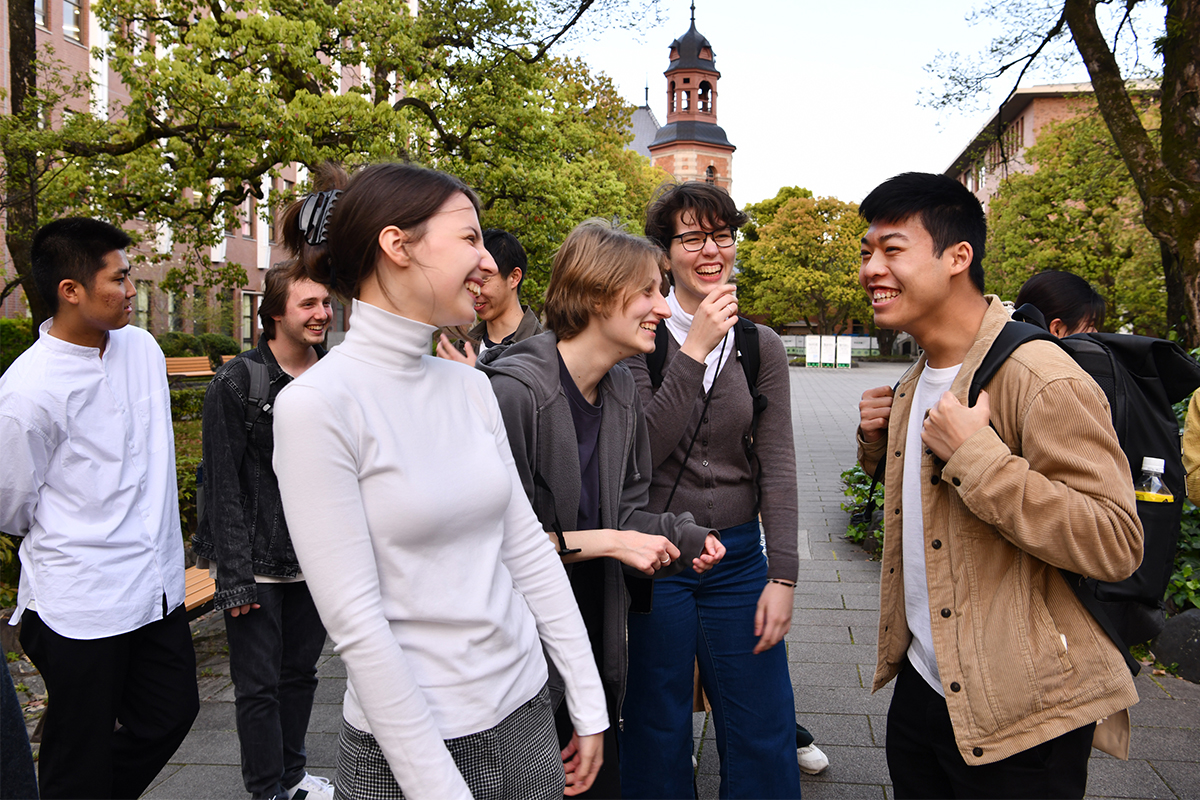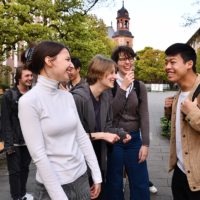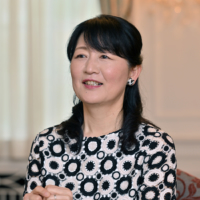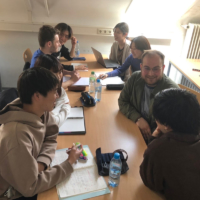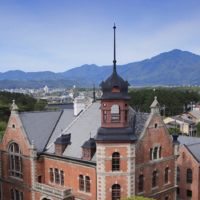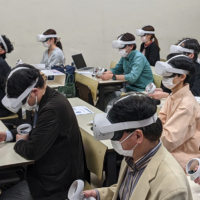In 1864, when the isolationist foreign policy of the Tokugawa shogunate was still in effect, Jo Niijima, a 21-year-old son of a samurai, left Japan for the United States, risking capital punishment. For Niijima, it was an adventurous quest to seek a land where greater equality, freedom and human rights were more the norm than the exception. While studying overseas, he embraced Christianity and started nurturing a dream to provide education based on Christian principles in Japan, fostering people who value freedom and conscience. Upon his return, Niijima established Doshisha Academy (Eigakko) in Kyoto with the aim of cultivating “people of independence and autonomy.” Since its foundation, Doshisha has been striving to cultivate people who use their abilities as conscience dictates, based on Christian principles.
A global philosophy
Today, with its “education of conscience,” the university still places unwavering value on individual freedom and is committed to nurturing global minds. For Doshisha, true internationalization means an immense push toward diversity, while investigating and accepting different values. In 2020, Tomoko Ueki became the university’s first female president, and declared that Doshisha would reinvigorate the promotion of diversity. It plans to do this in four main areas: gender equality and work-life balance; multiculturalism and international understanding; support for people with disabilities; and awareness of sexual orientation and gender identity.
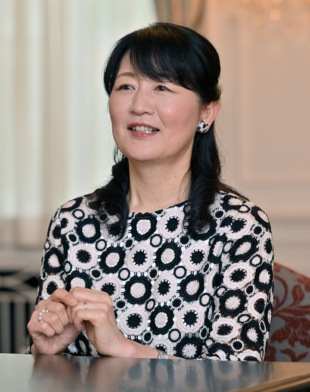
“We’ve created a diversity promotion committee, and have conducted surveys among faculty members and administrative staff to find out what issues they are facing, and although it is not easy to solve all of them immediately, we are trying to find the best solutions. Diversity covers a wide range of issues, but we are committed to providing support for the most immediate ones,” Ueki said.
One such effort was a training session on racial harassment that was held for all employees to address such issues as discrimination and hate speech directed at minorities. At the same time, the university realizes that an educational approach that prioritizes diversity and internationalization will be central in addressing these matters.
For this reason, in 2021, a new educational dormitory, Keishiryo Dormitory, was built as the realization of “a dormitory where both local and international students live and study together without distinction.” It offers the Residential Learning Program for its residents to participate in practical learning through involvement in the local community and to confirm their progress through presentations and reflections of what they have achieved. Ueki explained that the concept of the dormitory is to nurture individuals who understand each other’s diverse values and have the ability to lead those differences to new creations through living in an environment where students from diverse backgrounds live and interact with each other in a multicultural and intergenerational manner. This year, the university will start offering an elective dedicated to diversity issues. The Doshisha Spirit and Diversity course will be open to all students. The course will emphasize respect for different values and perspectives, and in fact, each of the 15 lectures is given by faculty members from various fields of expertise on diversity.
Co-curricular environment
The university is focusing on creating international co-curricular opportunities since “Internationalism” is one of its educational principles and crucial in the promotion of diversity. The strong relationships with its partner institutions around the world play an important role to this effect.
In 2017, Doshisha opened its EU Campus at the University of Tuebingen, a good German friend for more than 30 years.
Doshisha students in all faculties can apply for the five-month programs at the EU Campus. After debuting in 2019, the German Language and Intercultural Studies Program in the spring semester sees Doshisha and Tuebingen students taking classes together. Another track, the European Studies Program in the fall semester, offers courses on historical and contemporary issues, such as immigration and human rights in the EU. The EU Campus is a place where students from both universities can work together, but at the same time, it has an important role to play with regard to research.
“The EU Campus aims to promote comparative research and develop vibrant academic exchange not only with Germany, but also with the rest of Europe in all fields, including theology, ethics, information studies and health sciences,” Ueki said.
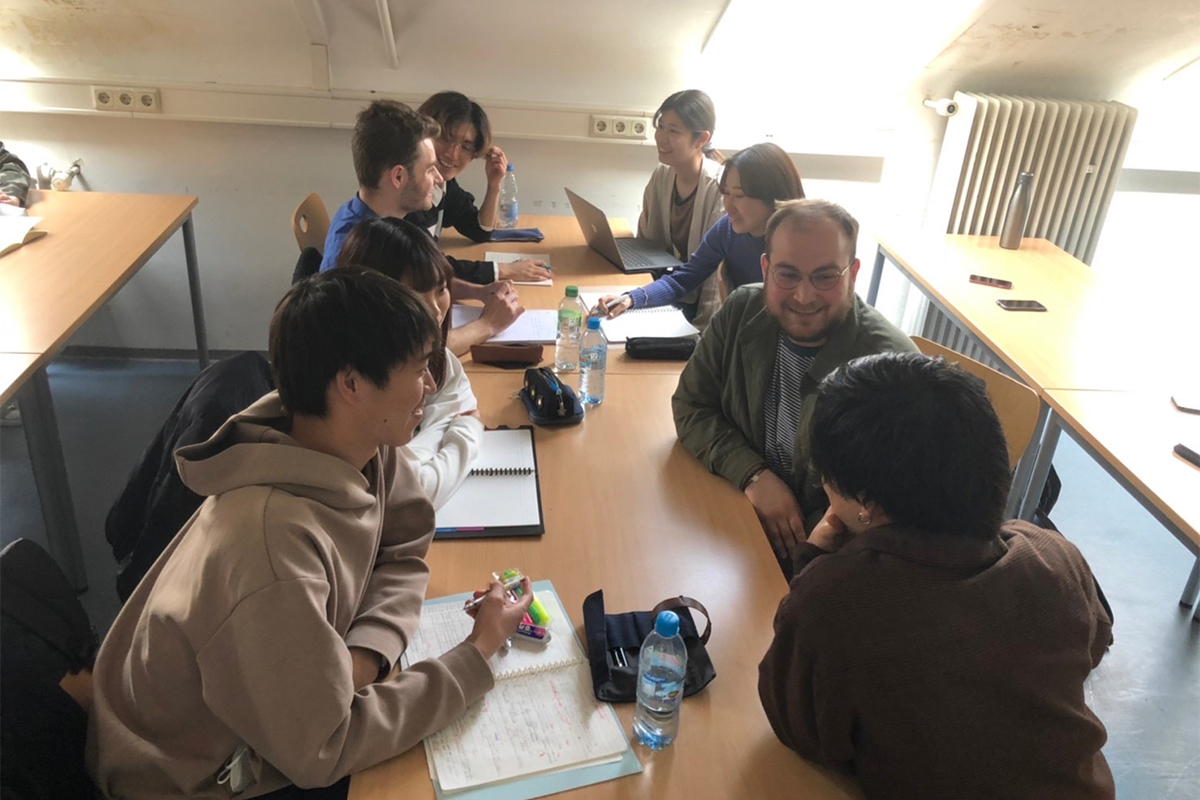
Doshisha has proven it is possible to provide an international co-curricular environment at the university as well.
Just as many students go abroad to study at its over 170 partner universities each year, Doshisha hosts students from all over the world in Kyoto. In addition, the Associated Kyoto Program, the Tuebingen University Center for Japanese Studies, the Stanford Program in Kyoto, and the Kyoto Consortium for Japanese Studies were all established by leading foreign universities and are hosted at Doshisha University. AKP is a study abroad program in Japan with history of over 50 years. It accepts students from 13 leading liberal arts colleges in the United States, including Amherst College, Niijima’s alma mater. TCJS meanwhile celebrates its 30th anniversary this year. These four centers operate their own programs, allowing the international students to interact with local students on campus on a daily basis, which is one of the unique features of the university. Also, some of the lectures from the programs are offered as courses at the university, providing valuable opportunities for Doshisha’s students to attend classes at leading foreign schools without having to leave Japan.
“It’s important for students to broaden their ways of thinking. Even if they don’t go abroad, I would like them to do this by interacting with various people, not only those from their own area,” Ueki said.
Vision for the future
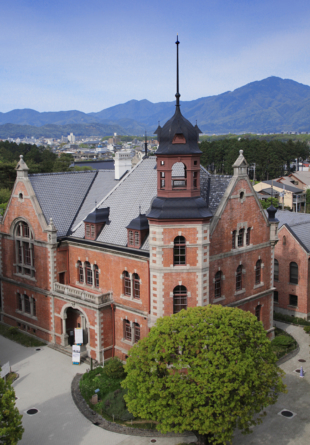
Doshisha will celebrate its 150th anniversary in 2025. Guided by the strategic Doshisha University Vision 2025 plan, it intends to continue to launch programs to further promote their international understanding and diversity.
The co-curricular programs already underway will be enhanced by the new academic calendar for 2024, which moves up the start of Doshisha’s summer break to match academic calendars abroad.
In yet another new initiative, students have already expanded their learning options by participating in programs offered by the Association of Christian Universities and Colleges in Asia, of which Doshisha is a longtime member. Launched during the COVID-19 pandemic, ACUCA’s Micro Degree Program, which is conducted online, brought students from various Asian universities together. The students and the faculty are expected to receive more opportunities when Doshisha assumes the presidency of ACUCA next year and hosts conferences and other activities during the two-year term.
Doshisha’s initiatives, both big and small, demonstrate its dedication to integrating diversity in every facet of its operations. The president noted that changing mindsets is the most important, but admittedly monumental, requirement for the realization of a more inclusive society. Therefore, Doshisha’s founding spirit of cultivating an education of conscience remains as important as it was when
Niijima first started his mission.
“Now, with the pandemic, wars and various conflicts ongoing in the world, we must reaffirm the need to understand the diverse backgrounds and positions of others. We cannot exclude those who are different from us; we must instead find a new way to improve the situation for everyone. I think the education of conscience is more important now than it was 10 or 20 years ago because everything is becoming a little bit more confrontational,” Ueki said.
Turning carbon neutrality into reality main target of collaborative research
Doshisha University is making its contribution to Japan’s ambitious goal of carbon neutrality by 2050 through its core missions of education and research. Under Doshisha Education and Research Platform for Carbon Recycling (CRPF) established in 2021, the university is actively seeking cross-industrial-sector collaborations to achieve zero net emissions. At the same time, demonstrating the benefits of its groundbreaking carbon recycling technology is also one of the institution’s primary objectives.
The CRPF consists of three parts based on integrated humanities and sciences education and industry-academia collaboration. The first part is an advanced liberal arts education based on founder Jo Niijima’s desire to develop innovators and entrepreneurs. In these courses, students, instructors and businesspeople try to design the future through lectures and exercises. The second is a technical forum that acts as a venue for domestic and international players to exchange ideas on energy and environmental issues, as well as share collaborative intellectual properties. The third part is a consortium that serves as a bridge connecting industry, government and academia.
According to professor Takuya Goto, a representative of CRPF, environmental problems that involve complex factors are changing day by day, so the related technologies should also be updated with those changes. One of the results born from education and research by CRPF is the Carbon Energy Recycle Bank. “We have developed CERB as a revolutionary infrastructure device to utilize carbon dioxide as a carbon resource and to store intermittently generated power on demand, and produce heat and electricity when needed,” he said.
CERB integrates various technologies; Through CERB, carbon dioxide can be decomposed, made harmless and converted into hydrocarbons. At the same time, by storing energy and leveling supply and demand, it will greatly contribute to promoting the generation of renewable energies, such as wind and solar power.
Doshisha has originally worked on research and education with air-conditioning giant Daikin Industries. Through active partnership to offer training toward innovative solutions, the Doshisha-Daikin Next Environment Research Center was established in 2020. With “recycling-oriented” as the theme for building a future environment, the center offers courses on a variety of environmental and social issues to Doshisha graduate students and professionals from Daikin. The CRPF is an education and development institution that embodies the social implementation of carbon recycling technologies born from corporate-academic cooperation.
“One of the important missions of our university is to contribute to society by disseminating its accumulated knowledge to society,” said President Tomoko Ueki. “How can we contribute to the companies in our local area? What can we do to solve social issues through academic cooperation? When we think about that, we would like to work closely together with the community.”
An example of the university’s success in social contribution is reduction in greenhouse gas emissions and the improvement of air-conditioner efficiency. This has been achieved through Daikin’s business activities.
Additionally, the two entities will promote the development of human resources for collaborative innovation through joint research. Doshisha graduates and professionals from Daikin hone their creativity in designing the future in year-long Next Environment collaboration courses.
“The opinions expressed by Daikin professionals included realistic perspectives based on the actual business situation, which greatly stimulated Doshisha’s graduate students,” notes the course report. The capstone project involves researching and prototyping a future device to solve a social or environmental issue.
The program consists of foundation courses, which include environmental literacy and diversity management, and other courses in the categories of regional environment, environment technology and future design.
Last academic year, 89 participants from Doshisha and Daikin took the courses in the program under COVID-19 restrictions. One of the classes used virtual reality goggles to interact in a so-called metaverse. Facilitators explored active learning and discussions were held on pressing and complex topics, such as international disputes and mediation, ecology, a nature positive economy and the U.N.’s sustainable development goals.
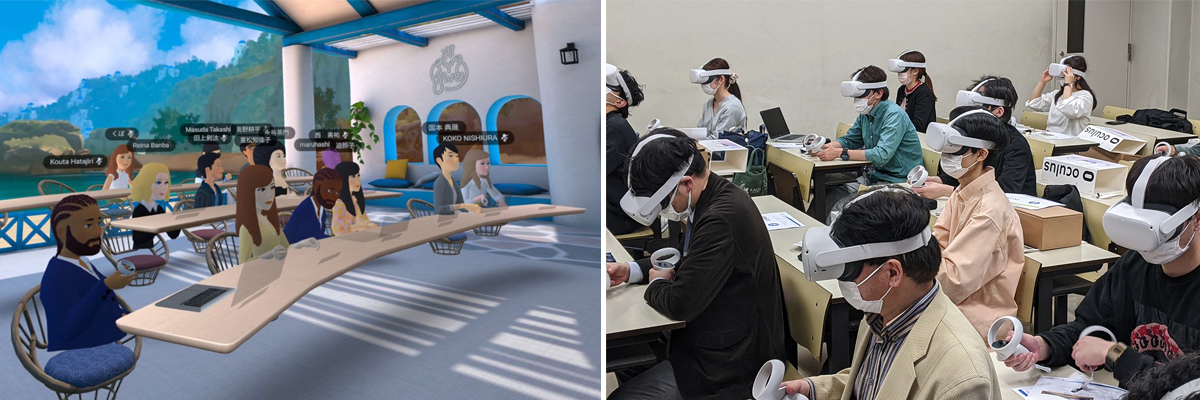
“The students submitted assignments for each on-demand video. Based on these assignments, active learning was conducted in the metaverse class, which enabled facilitators to accurately grasp the level of understanding and interest of the students,” the course report reads. At the end of the program, some of the most promising design proposals were selected for further research. Among them, two proposals concerned temperature-regulating clothing, and “zero energy” or carbon-neutral houses. This academic year, a special class is being planned in the Philippines. Daikin’s Technology Innovation Center, Doshisha and the University of the Philippines will collaborate to develop the program.
“The Graduate School of Doshisha University is committed to the study of global issues on the ground in developing and emerging countries. By fostering individuals who can face social issues, return the results to Japan and build strategic partnerships with people from these countries,” the course booklet notes.
Carbon recycling-related environmental and social issues are complex, and many of the answers remain unknown. “In addition to technological development, achieving these goals will require responses to various issues involving consumer activities, political economy, and even human psychology, such as lifestyle review. This includes changes in energy policy, social implementation, emissions trading, carbon pricing and support for developing countries. The goal to reduce carbon dioxide emissions to virtually zero is truly a challenge. It is essential for industry and academia to work together to solve specific problems in their respective fields of expertise,” Goto said.
This page is sponsored by Doshisha University.
Doshisha University
Address: Karasuma-higashi-iru, Imadegawa-dori, Kamigyo-ku, Kyoto-shi 602-8580, Japan
Tel: +81-75-251-3120
E-mail: [email protected]
URL: https://www.doshisha.ac.jp/en/index.html



